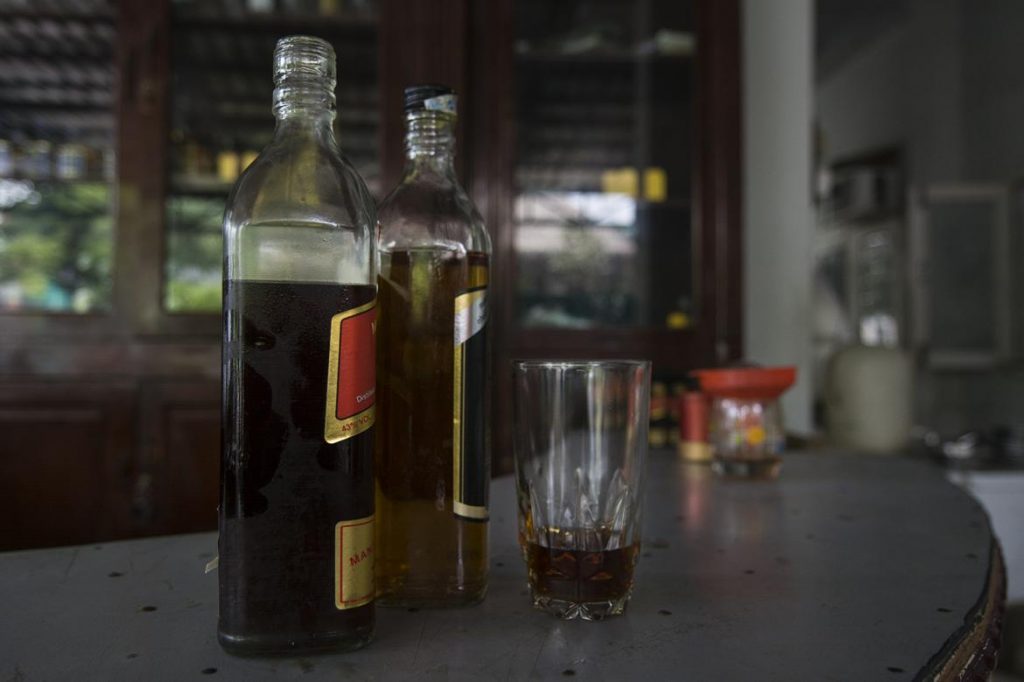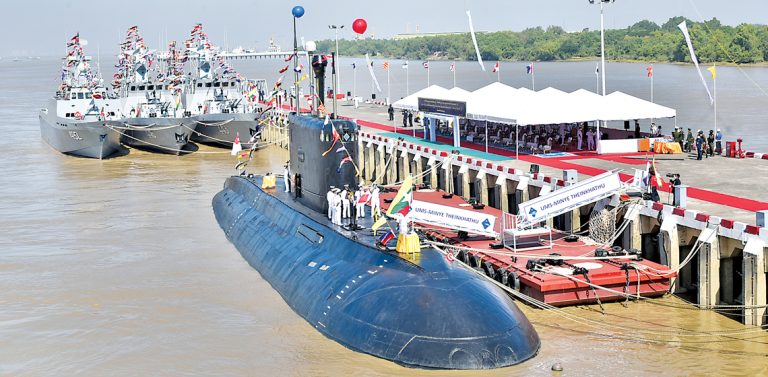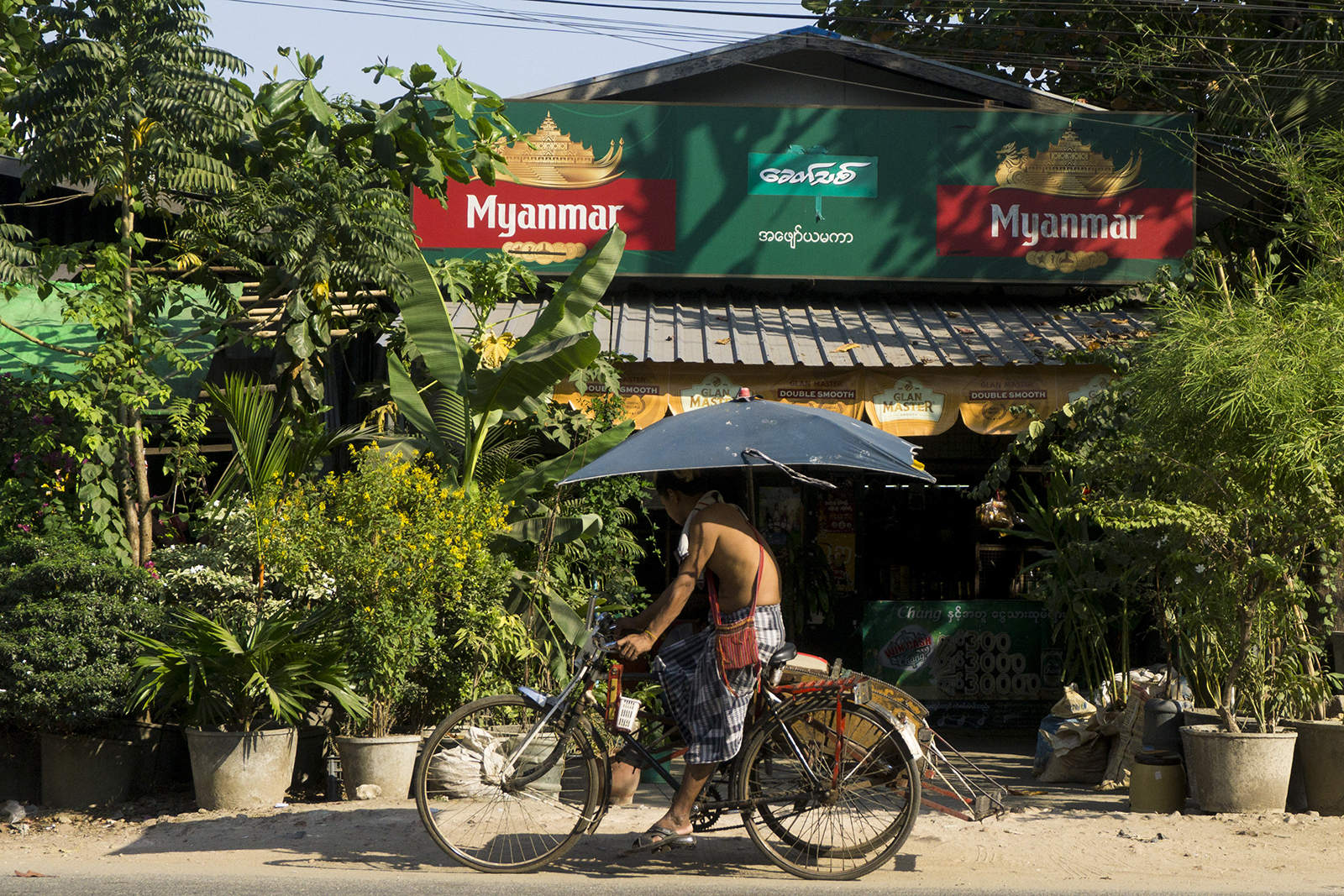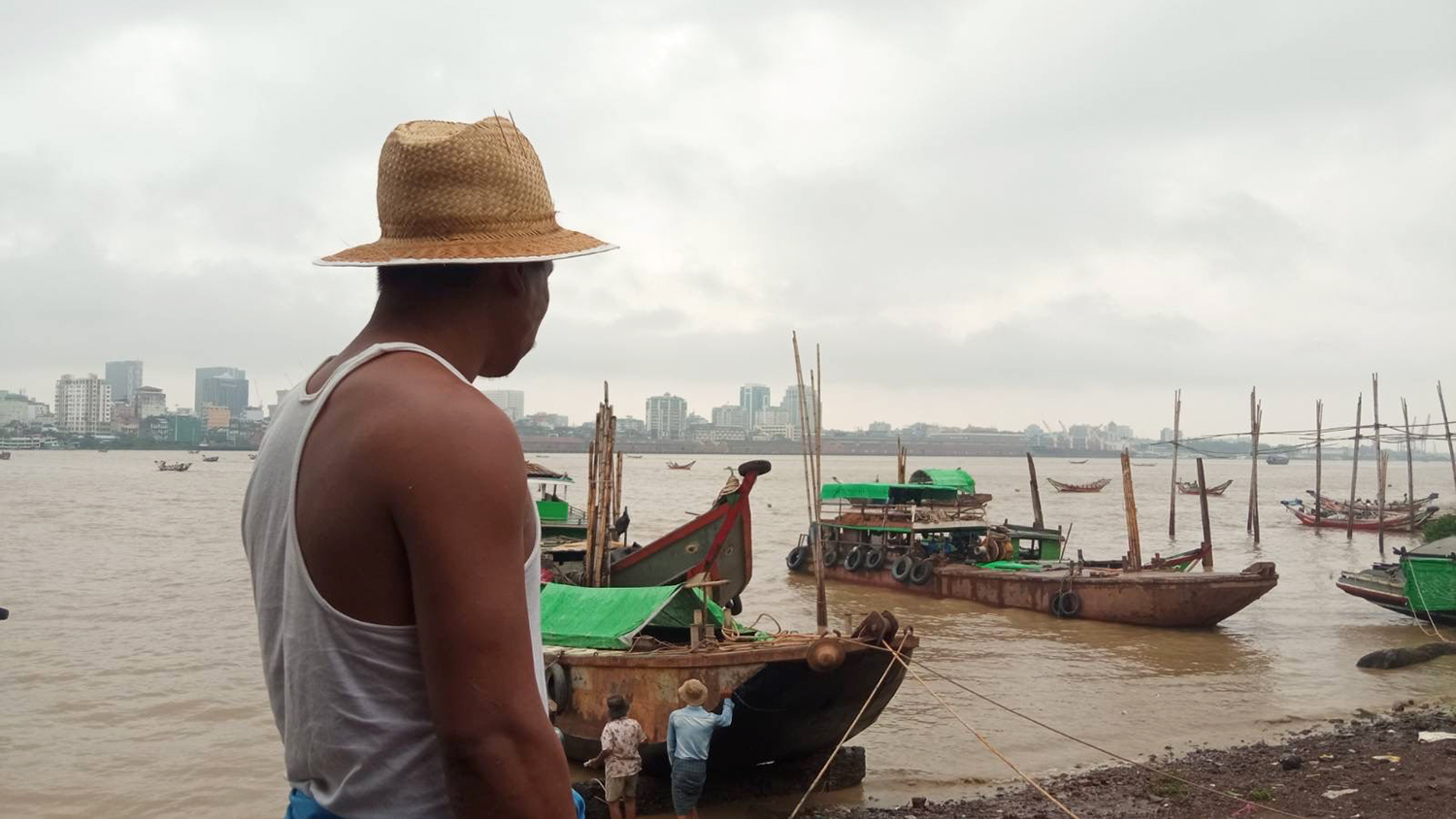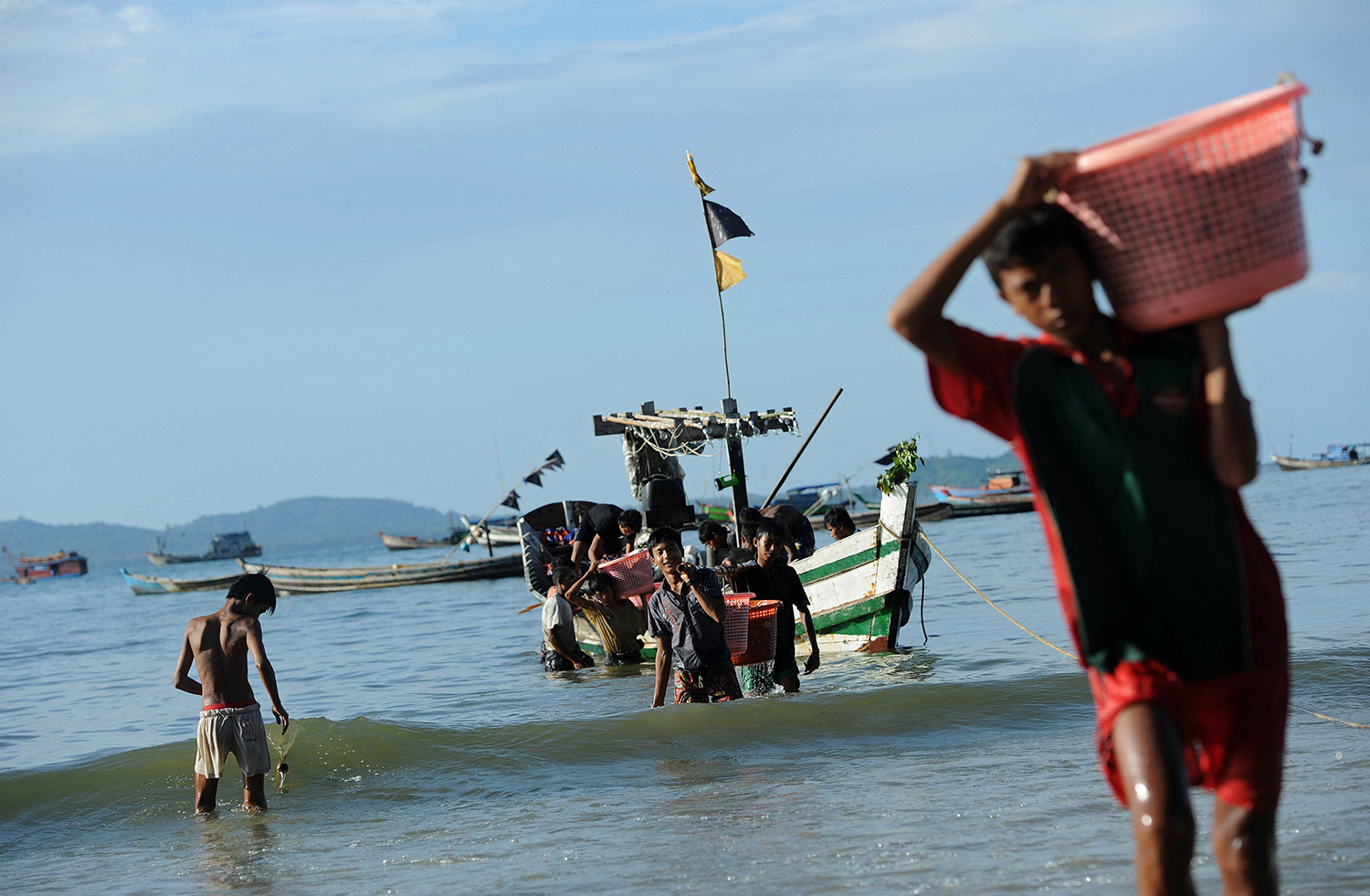By KYAW YE LYNN | FRONTIER
YANGON — The Yangon Region government introduced new restrictions on the sale of foreign liquor following lobbying from local producers, Frontier has learned.
Late last month the Yangon Region Department of Consumer Affairs told licensed liquor retailers and wholesalers in the city that they could no longer sell foreign liquor unless they could show it was legally imported, threatening them with prison time if they failed to comply. The order has effectively made it impossible for stores to sell imported liquor due to a decades-old import ban.
U Myint Cho, the head of the department for Yangon Region, confirmed that the crackdown was prompted by local producers’ complaints about the sale of foreign liquor in Yangon stores.
“We found that illegally imported spirits were being sold at low prices and this is not good for domestic producers,” he said. “And who knows whether the products are real or fake.”
Support more independent journalism like this. Sign up to be a Frontier member.
Among those opposed to relaxing the import ban is liquor tycoon U Aung Moe Kyaw, owner and chair of International Beverages Trading Company Group, which was reported in a 2014 study to dominate the domestic whisky market with an 80 percent share that was generating revenue of US$100 million a year.
Myint Cho said Aung Moe Kyaw had raised the issue with Daw Aung San Suu Kyi when the state counsellor met business leaders in Nay Pyi Taw in late August.
Neither Aung Moe Kyaw nor the Myanmar Liquor Association, of which he is the chair, could be reached for comment. The MLA has previously declined repeated requests for interviews from Frontier.
A Trade Department official told Frontier that several leading domestic producers had met government officials recently to discuss illegal imports.
“They explained that the smuggling of foreign liquor was thriving and it was harming domestic producers,” he said. “They acknowledged that the government would get more tax by allowing imports of foreign liquor, but also said, ‘You have to protect local businesses if you care about jobs for Myanmar people.’”
Ban creates black market
The Ministry of Commerce has banned most imports of liquor since 1995, but a thriving black market has ensured that foreign brands have always been readily available in Yangon and other parts of the country.
Much of the foreign liquor in the market is thought to be smuggled in through the country’s porous land borders. Some is also imported by select hotels and duty-free outlets, which in the past have sold stock on to local distributors.
Retailers and wholesalers that hold a FL-12 licence from the General Administration Department are allowed to sell imported liquor and until recently had not been required to prove that stock was legally imported.
But the Department of Consumer Affairs told FL-12 licence holders at meetings held at the four district GAD offices across Yangon on September 29 and 30 that they would face up to three years’ imprisonment if caught selling illegally imported spirits.
This prompted many small liquor stores to pull imported liquor from their shelves, although many were still selling stock under the table to trusted customers.
Myint Cho said that the FL-12 licences were not being revoked but acknowledged that they were now effectively useless because liquor stores had no way to acquire legally imported stock.
“The government currently only allows duty free shops and hotels to import [foreign spirits]. So any sales of foreign liquor other than by duty free shops or hotels are illegal and punishable,” he said.
Ministry of Commerce deputy director U Thet Naing said the crackdown only applied in Yangon and was being spearheaded by the Yangon Region government.
“Our understanding of this decision is that there is a thriving trade in foreign spirits that are fake or not approved by the FDA,” he told Frontier on October 5, referring to the Food and Drug Administration.
The Ministry of Commerce has no plan to impose the restrictions across the country, said Thet Naing, who heads the policy section at the Trade Department. “It depends on the policies of the respective regional governments.”
Dr Min Wun, director of the FDA’s Yangon office, told Frontier on October 8 that his department was unable to test whether products were counterfeit.
“For example, we don’t test if a product is really Johnnie Walker whisky. We just test if it has alcohol or not,” he said.
The pro-import argument
Not all local players support the ban on imports and crackdown on sale of foreign liquor.
U Zaw Win of Asia Beverages Co Ltd, which produces the whisky brand High Class, said the argument that an import ban was needed to protect local businesses and jobs didn’t stack up.
He said permitting imports of liquor should work in favour of domestic producers, because foreign brands were already available in the market but would be more expensive if they were taxed.
“Illegal imports aren’t taxed, so that makes foreign liquor cheap,” he said. “Local producers can’t compete. For example, who would buy a local whisky for K7,000 when a bottle of [Johnnie Walker] Red Label is K10,000 or K11,000?
“If the government allowed imports and taxed them, foreign liquor would be more expensive. That would be an opportunity for local producers to upgrade their products.”
Zaw Win acknowledged there was some self-interest in his argument because of his company’s recent partnership with French beverage giant Pernod Ricard, but said he believed there was a strong case for allowing imports.
In May, Pernod Ricard acquired part of Access Myanmar Distribution Co Ltd, which was created in 2014 through a joint venture between Asia Beverages, Singapore-listed Yoma Strategic Holdings Ltd and private equity fund manager Delta Capital Myanmar.
On October 5, Access Myanmar Distribution unveiled Seagram whisky, which it describes as Myanmar’s “first locally produced foreign spirit”.
The Seagram name dates back to the 19th century with the founding of a distillery in Montreal, Canada, that would later be renamed Joseph E Seagram & Sons. The Seagram brand was acquired by Pernod Ricard in the early 2000s after the breakup of the Seagram conglomerate.


